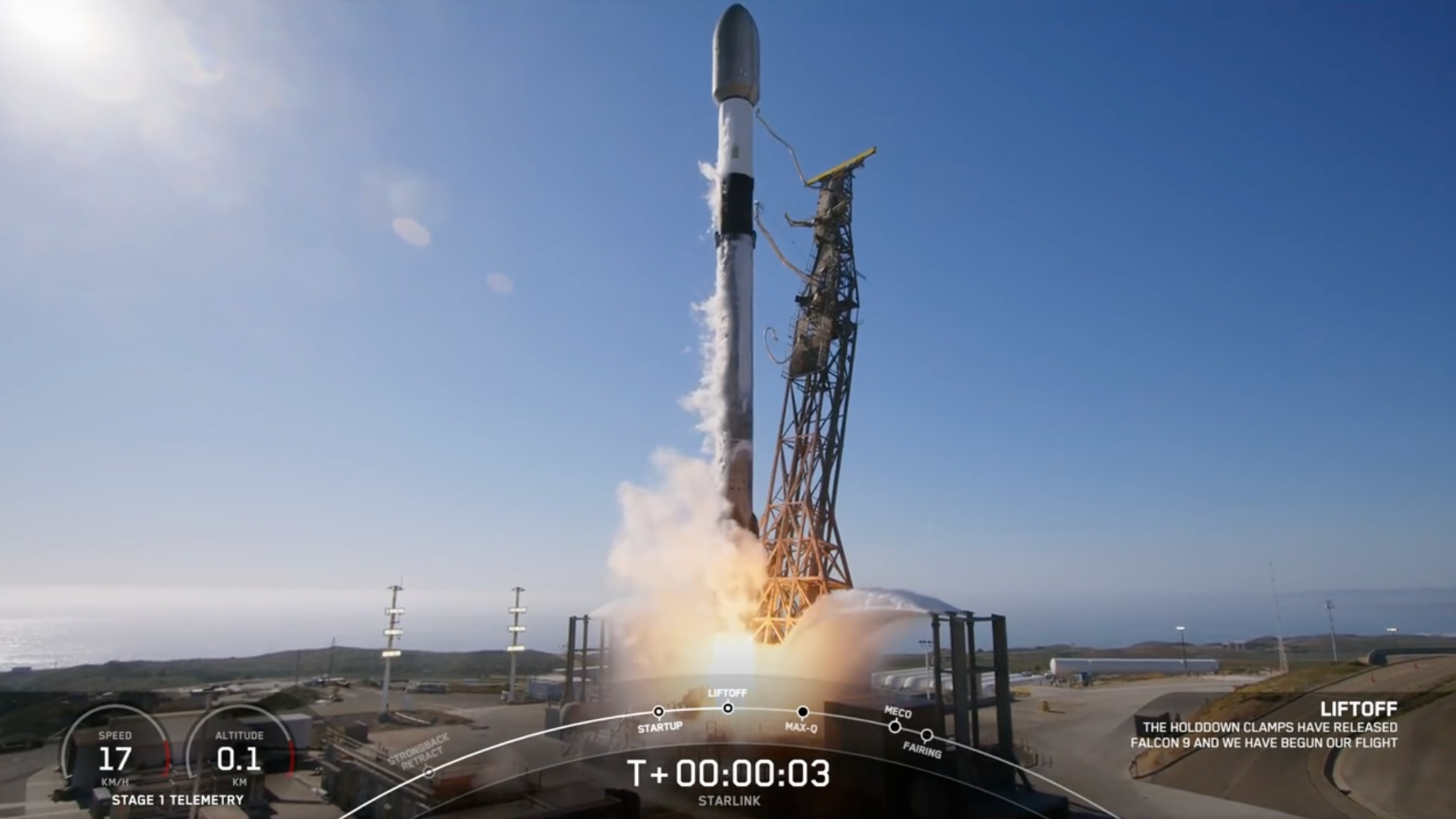5 things to watch as US-China kick off trade talks
President Trump issued Friday his clearest sign yet of his desire to de-escalate the trade war he started with China last month. “80% Tariff on China seems right! Up to Scott B,” Trump wrote in a post on Truth Social, publicly advising his Treasury secretary, Scott Bessent, to lower tariffs on China from the current...

President Trump issued Friday his clearest sign yet of his desire to de-escalate the trade war he started with China last month.
“80% Tariff on China seems right! Up to Scott B,” Trump wrote in a post on Truth Social, publicly advising his Treasury secretary, Scott Bessent, to lower tariffs on China from the current 145 percent rate.
Bessent will lead the U.S. delegation for talks in Geneva, Switzerland, opposite Chinese Vice Premier He Lifeng, which will mark the first talks since Trump’s “Liberation Day” tariff announcement.
The U.S. currently has broad 145 percent tariffs on Chinese imports, while China has raised its duties on American products to 125 percent. Economists say these rates effectively act as an embargo, and they expect massive disruptions to global supply chains if these tariffs don’t fall fairly soon.
Both sides have carved out key imports — electronics on the U.S. side and some pharmaceuticals and other products on the Chinese side — pointing to the inevitable pain for consumers in both countries if the trade war drags on.
Global markets will be watching the meeting intently for any signs of a thaw or continued standoff between the world’s two biggest economies.
Here’s what to know about the talks.
China says US requested meeting
China has repeatedly said that the U.S. requested the talks, and that it won’t be bullied into a bad trade deal.
“This tariff war was started by the US. China firmly opposes the US’s tariff hikes,” the spokesman for China’s foreign ministry said in a Wednesday post on X. “Meanwhile, China is open to dialogue, but any dialogue must be based on equality, respect and mutual benefit. To pressure or coerce China in whatever way simply does not work.”
Trump chafed at that characterization in remarks to reporters at the Oval Office later in the day.
“They said we initiated? Well, I think they ought to go back and study their files, OK?” he said.
In a congressional hearing earlier this week, Bessent disputed Trump’s suggestion that China and the U.S. have been engaged in ongoing trade discussions, telling lawmakers that talks were definitively not in an “advanced” stage.
"I said, on Saturday, we will begin, which I believe is the opposite of advanced," he said.
Bessent said he will be joined by U.S. Trade Representative Jamieson Grier, but that Peter Navarro, Trump’s hawkish trade advisor, will not be part of the delegation.
The Wall Street Journal reported Wednesday that China’s role in the fentanyl crisis provided an opening for the initial talks, and China's security minister would be in Geneva, suggesting fentanyl will be on the agenda this weekend.
The Trump administration has frequently described its previous tariffs on China — as well as Mexico and Canada — as a response to a lack of sufficient effort to stop fentanyl from their countries from entering the U.S.
Who blinks first?
Both Trump and Chinese leader Xi Jinping see political opportunity in a trade fight, but also face major risks if it goes on for too long.
Edward Alden, a senior fellow at the Council on Foreign Relations who specializes in U.S. economic competitiveness, said it was unclear if either side was willing to make the concessions necessary for a de-escalation.
“This Trump administration seems to know how to conduct only very one-sided negotiations with smaller, weaker trading partners, and the Chinese are not going to agree to a negotiation on those terms,” he said.
“They're going to want this to be said as a negotiation of equals, with both sides making concessions. And I'm not clear to me that's politically acceptable to the Trump administration.”
The weekend meeting will offer one of the first signals of whether the two sides see a mutually agreeable way forward.
Alden said a worst-case outcome would be a public breakdown of talks before they even begin, a result that would likely send the stock market tumbling, while a best-case scenario would be an agreement to “stand down” on recent tariff moves as negotiations play out.
But the most likely outcome, he said, is agreeing to continue discussions without any immediate commitments or public disputes.
Economic warnings sound
The U.S. is already seeing the economic impact of Trump’s trade war with China, with shipping traffic beginning to fall.
Economic experts say the current tariffs, even if they come down in a few months, could do lasting damage to global supply chains and raise prices on goods in the U.S. Economists warn a sustained trade war could fuel a recession and “stagflation.”
Addressing these fears, Bessent has expressed optimism that the superpowers will agree to de-escalate and suggested that current tariffs are not sustainable.
Bloomberg this week reported on a single ship at a California port that was on the hook for about $417 million in tariffs under the current regime, illustrating how the current rates effectively shut down most trade between the countries.
Trump was asked about concerns over trade slowdowns in the Oval Office on Thursday.
"We're seeing as a result that ports here in the US, the traffic has really slowed and now thousands of dockworkers and truck drivers are worried about their jobs," a reporter said to Trump.
"That means we lose less money,” Trump responded, “when you say it slowed down, that's a good thing, not a bad thing.”
What the U.S. wants
The U.S. and China have deep trade tensions that predate Trump’s tenure in the White House.
The U.S. has for years asked China to trim production overcapacity and promote domestic consumption, along with halting price dumping, technology theft and other anti-competitive practices in global trade.
Experts think these are among the issues that will come up in Geneva this weekend.
“I think what he'll [Trump] demand this time, which is basically stop subsidizing, stop stealing our intellectual property, stop harassing Western companies, you know, reorient your economy to promote more domestic consumption so you don't try to export your way out of every economic problem you've got,” said Bill Reinsch, an expert on U.S.-China trade and the senior advisor at the Center for Strategic and International Studies.
“Increase domestic consumption, become more like a normal market economy,” Reinsch added in an interview with The Hill.
On the flip side, China wants the U.S. to relax export controls in order to have greater access to advanced technology, along with removing the steep tariffs.
“Both sides, I think, would probably say, if we can reach agreement and all that other stuff, then of course, both our tariffs will go away,” he said. “But the real ask [for China] is, you know, we want your high tech, and we want you to let us have it,” Reinsch said.
China has also ramped up the trade war by suspending exports of rare earth minerals and magnets that are vital to the defense, aerospace and auto sectors last month.
Chinese companies are reportedly seeking to redirect some exports through third countries like Malaysia and Vietnam, which are not subject to such high tariffs. But China also showed export growth last month, pointing to its success in diversifying trading relations.
Trump’s rhetoric puts GOP on edge
Trump appears to be preparing Americans to pay more for consumer goods, saying in recent interviews that girls may need to have fewer dolls given the impact of tariffs.
“All I’m saying is that a young lady, a 10-year-old-girl, 9-year-old girl, 15-year-old-girl, doesn’t need 37 dolls,” the president said to reporters on Sunday. “She could be very happy with two or three or four or five.”
That line of messaging did not go over well with some Republican senators, who said the president risked appearing out of touch with working families.
“The thing that I admire about it is he is willing to acknowledge that tariffs may have a short-term consequence, but be believes in the long run, they’ll have a long-term benefit, and he’s setting expectations at the family-table level,” Sen. Kevin Cramer (R-N.D.) told The Hill.
“But he might be setting the expectations as a millionaire that may not translate to the family worker.”
The GOP could face much bigger problems if Trump’s policies drive up prices or spur “stagflation,” when growth slows and inflation goes up.
“Even if the tariffs have not allowed trade, there will still be some prices will go up, and domestic companies will take advantage of the situation to raise their prices too,” Reinsch said. “So it'll be there'll be an inflationary bump for a while.”
Democrats are already seeing midterm pickup opportunities if tariffs hurt the economy without delivering on Trump’s promised upside.














































































